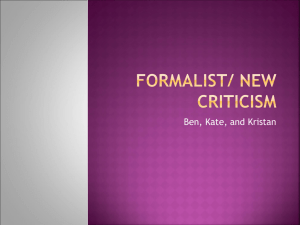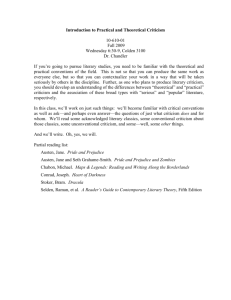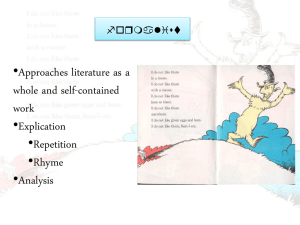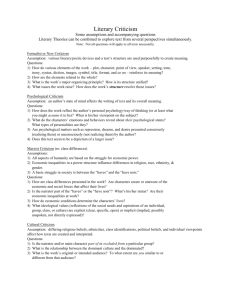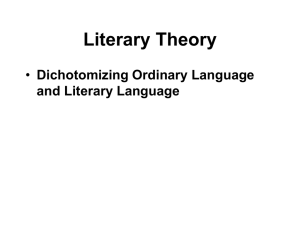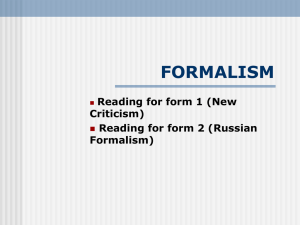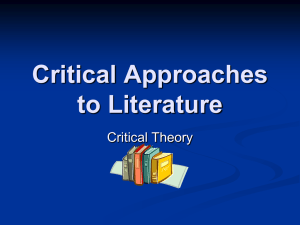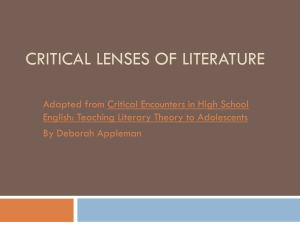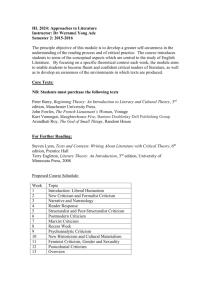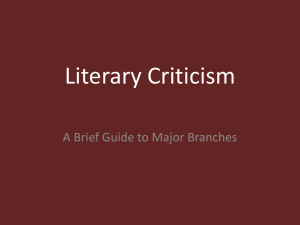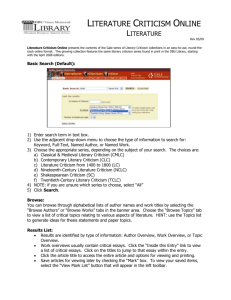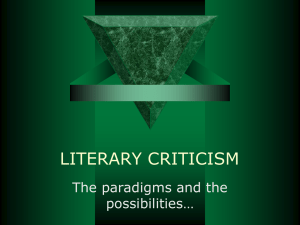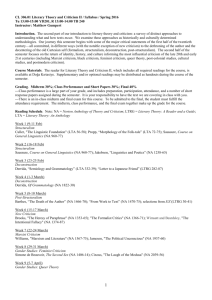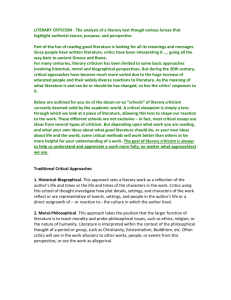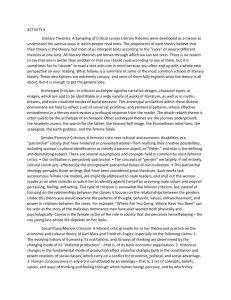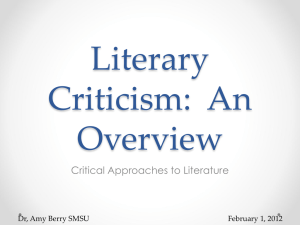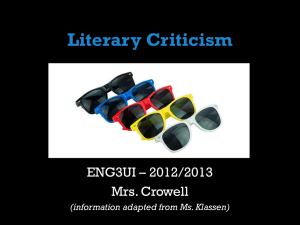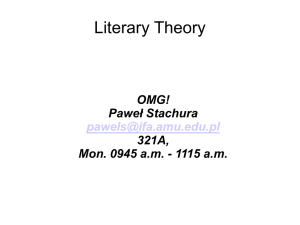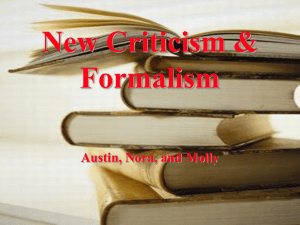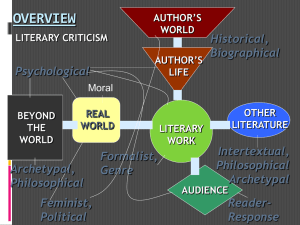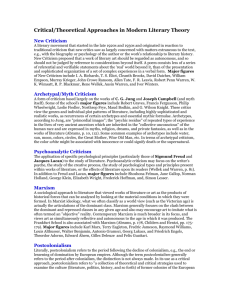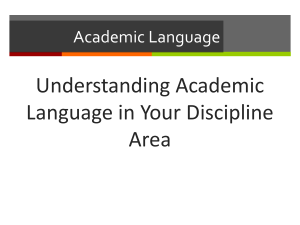ENG4u: Literary Theory 101
advertisement
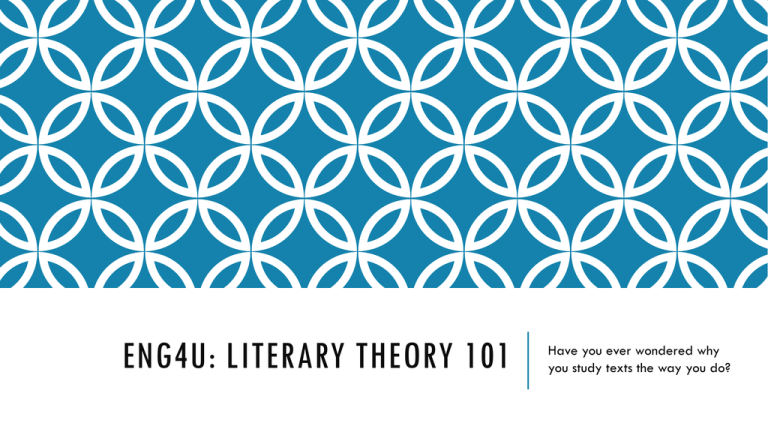
ENG4U: LITERARY THEORY 101 Have you ever wondered why you study texts the way you do? INTRODUCTION Please note that all notes that follow are available at Purdue University’s Online Writing Lab under Literary Theory and Schools of Criticism (see: https://owl.english.purdue.edu/owl/resource/722/1/) Why do we study texts the way we do? Is it more important to discuss pathetic fallacy in Frankenstein or the cultural context surrounding Dr. Seuss? What is Literary Theory? “A very basic way of thinking about literary theory is that these ideas act as different lenses critics use to view and talk about art, literature, and even culture. These different lenses allow critics to consider works of art based on certain assumptions within that school of theory.” INTRODUCTION Timeline Formalism (1930s-present) Psychoanalytic Criticism, Jungian Criticism(1930s-present) Marxist Criticism (1930s-present) Reader-Response Criticism (1960s-present) Structuralism/Semiotics (1920s-present) Post-Structuralism/Deconstruction (1966-present) New Historicism/Cultural Studies (1980s-present) Post-Colonial Criticism (1990s-present) Feminist Criticism (1960s-present) Gender/Queer Studies (1970s-present) FORMALISM (NEW CRITICISM) Theory contends that literary work includes various “intrinsic features” (ex. literary devices like symbols and metaphors) that create the meaning in the text We should study each work “as its own distinct piece, free from its environment, era, and even author” Typical Questions: “How does the work use imagery to develop its own symbols? How do paradox, irony, ambiguity, and tension work in the text? What does the form of the work say about its content? Is there a central passage that can be said to sum up the entirety of the work?” Generally formalism is outdated…but we still see it in secondary level teaching READER RESPONSE CRITICISM In other words… “What do you think?” Theory appreciates + values the reader’s response to literature and finding meaning in texts Two main beliefs:1) “that the role of the reader cannot be omitted from our understanding of literature and 2) that readers do not passively consume the meaning presented to them by an objective literary text; rather they actively make the meaning they find in literature“ Typical questions: “How does the interaction of text and reader create meaning? Do the sounds/shapes of the words as they appear on the page or how they are spoken by the reader enhance or change the meaning of the word/work? How might we interpret a literary text to show that the reader's response is the topic of the story? What does the body of criticism published about a literary text suggest about the critics who interpreted that text and/or about the reading experience produced by that text? “ POSTMODERN CRITICISM Theory focuses on breaking down structure, frameworks, constructs (ie. it focuses on deconstruction) We cannot seek a single truth in a text…because there is no unified truth (there are multiple!) Concerned with power structures and hierarchies that give value to texts (through deconstruction, we can make sense of the gaps and marginalized voices in texts) Typical Questions How is language thrown into freeplay or questioned in the work? How does the work undermine or contradict generally accepted truths? How does the author (or a character) omit, change, or reconstruct memory and identity? How does a work fulfill or move outside the established conventions of its genre? What ideology does the text seem to promote? What is left out of the text that if included might undermine the goal of the work? If we changed the point of view of the text - say from one character to another, or multiple characters how would the story change? Whose story is not told in the text? Who is left out and why might the author have omitted this character's tale? DECONSTRUCTIVE OTHERS… New Historicism: “every work is a product of the historic moment that created it” Post-Colonial Criticism: concerned with the relationship between the colonizer and colonized (issues of power, economics, religion etc.). Notions of first world, second world and third world are questioned and critiqued. Feminist Criticism: examines the ways literature questions, reinforces or challenges the oppression of women Gender Studies + Queer Theory: examines the way gender studies and sexuality are discussed, categorized, and questioned
